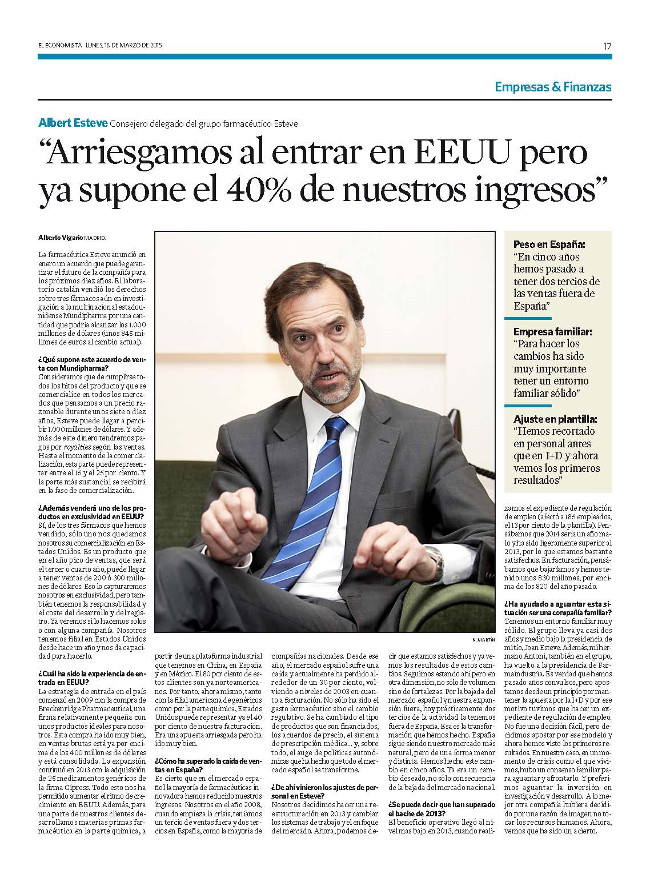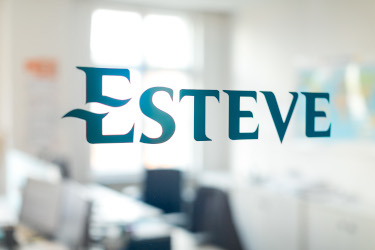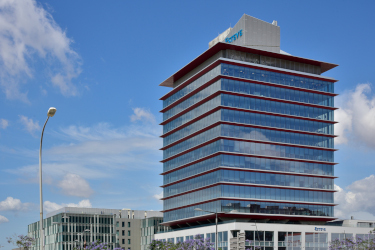17/03/2015
"WE’RE TAKING A RISK BY BREAKING INTO THE US BUT IT ALREADY ACCOUNTS FOR 40% OF OUR INCOME"
Albert Esteve Chief Executive Officer of the Esteve pharmaceutical Group.

In January the pharmaceutical firm, Esteve, announced an agreement that could ensure the company's future for the next ten years. This Catalan company has sold the rights to three drugs, still in the research stage, to the US multinational Mundipharma for an amount that could potentially total 1 billion dollars (around 845 million euros at today's exchange rate).
What does this sales agreement with Mundipharma mean to you?
We believe that, should all the product's milestones be met and the product sold at a reasonable price for around seven or ten years in all the expected markets, then Esteve could potentially receive a billion dollars in payments. And, in addition to this sum, we'll also be paid royalties in line with sales. Until the product actually goes on sale, royalties could account for 15 and 25 percent while the most substantial part will be received once the product goes on sale.
Will you also be the exclusive seller of one of the products in the USA?
Yes, of the three drugs we've sold, only one will still be sold by us in the United States. It's a product that, at its peak in the third or fourth year, could achieve sales of 200 or 300 million dollars. We'll sell that exclusively but we'll also be responsible for its development and registration, plus related costs. We'll see whether we go it alone or with another company. We've had a subsidiary in the United States for a year now and that gives us the capacity to do it on our own.
What has been your experience of breaking into the USA?
Our strategy for breaking into the US market started in 2009 with the acquisition of Breckenridge Pharmaceutical, a relatively small firm with ideal products for us. This acquisition has performed very well in gross sales, already above 400 million dollars, and it's well established. Our expansion continued in 2013 with the acquisition of 25 generic drugs from Cipress, helping us to increase our rate of growth in the USA. Also, for some of our clients we develop pharmaceutical raw materials in our chemical division, using an industrial platform we have in China, in Spain and Mexico. 80 percent of these clients are North American so that, right now, both with the American generics subsidiary and with the chemical part, the United States could already account for as much as 40 percent of our turnover. It's a risky proposal but it's gone very well so far.
How have you overcome the drop in sales in Spain?
It's true that, in the Spanish market, most innovative pharmaceutical firms have lost income. When the crisis began in 2008, like most Spanish companies one third of our sales were abroad and two thirds in Spain. Then the Spanish market slumped and it's currently down by about 30 percent, returning to the levels of 2003 in billing terms. This wasn't due solely to government spending cuts on drugs but also to regulatory changes. There have been changes to the types of product that are financed by the state, to price agreements, the medical prescription system and, above all, an increase in policies by the autonomous communities which have resulted in the complete transformation of the Spanish market.
Was this the reason for Esteve's adjustments in personnel?
We decided to restructure the company in 2013 and to change both how we work and our market focus. We can now say that we're satisfied and we're already seeing the results of these changes. We're still there but at another dimension, not only in volume but also in terms of our strengths. As a result of the slump in the Spanish market and our expansion abroad, today almost two thirds of our business is outside Spain. That's the transformation we've undergone. Spain is still our most natural market but to a lesser degree and in a different way. We've carried out this change over five years. It was a change we had already planned, not only because of the slump in the Spanish market.
Can you say you've now got over the bad patch in 2013?
Our operating profit hit bottom in 2013 when we carried out our redundancy scheme (affecting 185 workers, 13 percent of the workforce). We thought that 2014 would be a bad year but it was slightly better than 2013, so we were quite satisfied. We thought our turnover would decrease but we made around 830 million, more than the 820 million the previous year.
Has being a family firm helped you to withstand this situation?
We have a very solid family environment. My uncle, Joan Esteve, has been the Group's Chairman for almost two and a half years now and my brother, Antoni, also on the Board, is once again the Chairman of Farmaindustria. It's true we've been through some tough times but, from the start, we were committed to maintaining our R&D and that's why we had to make redundancies. It wasn't an easy decision but we chose that model and now we're starting to see the first results. In our case, at a time of crisis like the one we've just been through, the family all agreed that we had to hold firm and tackle it. And we chose to maintain our investment in research and development. Perhaps another company, for image reasons, would have decided not to touch human resources but now we realise we made the right choice.



